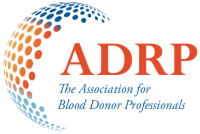Incentives for plasma donation
Authors
Elena Koch, Antonia Leiße, Besarta Veseli, Johannes Jensen, Marloes Spekman, Eva-Maria Merz, Edlira Shehu, Jean-Baptiste Thibert, Antoine Beurel-Trehan, Marion Leblond, Martin Oesterer, Philipp Kluge, Donata Forioso, Michel Clement
Abstract
Background and Objectives
This work provides an overview of the incentives used for plasma donation in Europe and beyond. The overview can provide new ideas to blood establishments.
Materials and Methods
We conducted a systematic online search of incentives used and asked national experts to validate the data across all European Union countries as well as other European and non-European countries. We categorized the data into level of incentive (using the Nuffield Council on Bioethics’ rungs [2011]) and country.
Results
We analysed more than 490 organizations across 26 countries. Our findings reveal different incentives used in these countries. Snacks and pre-donation health checks are commonly provided. In addition, loyalty programmes, small gifts, vouchers, lotteries, travel compensations and time off from work extend the strategic incentive portfolio. Only seven countries offer financial compensation ranging from the equivalent of 10–35€ for European countries. In countries with a decentralized model, where more than one organization collects plasma, we observe that more diversified incentive strategies are generally used, including monetary and non-monetary incentives. In countries with a centralized model, where only one organization is allowed to collect plasma, financial compensation is usually not offered. Centralized plasma collection without financial compensation relies on a wider range of non-monetary incentives than with financial compensation.
Conclusion
The country group analysis offers valuable insights into the relationship between incentive strategies and the prevailing centralized versus decentralized plasma collection model. This overview provides a broader understanding of incentives used by blood establishments and offers avenues for future practice.
March 15, 2024
Related Resources
Engaging blood donors as advocates Social media preferences and associations with marketing
Background: Various critical medical procedures would become impossible without blood donations—saving lives in emergencies, surgeries, and chronic conditions like thalassemia. Therefore, it seems crucial to enhance donor recruitment and ensure…
Rethinking the role of older donors in a sustainable blood supply
INTRODUCTION Many countries, particularly high human development index countries, are facing the challenge of an aging population.1 For Blood Collection Agencies (BCAs) in these countries, an aging population poses two…


